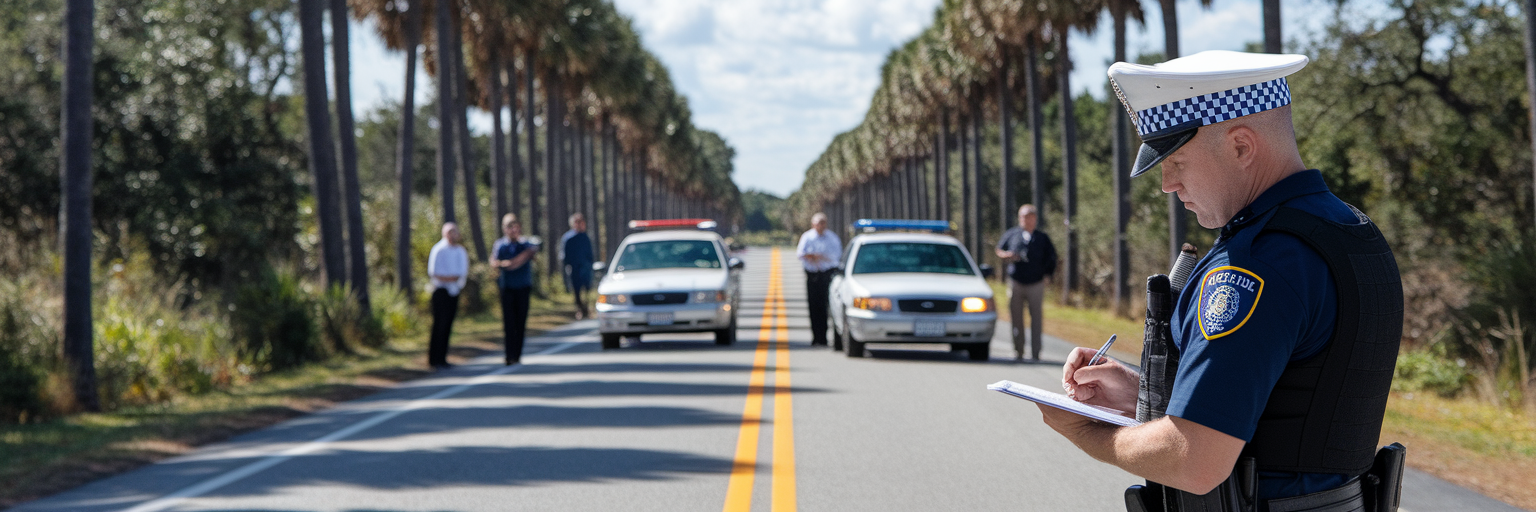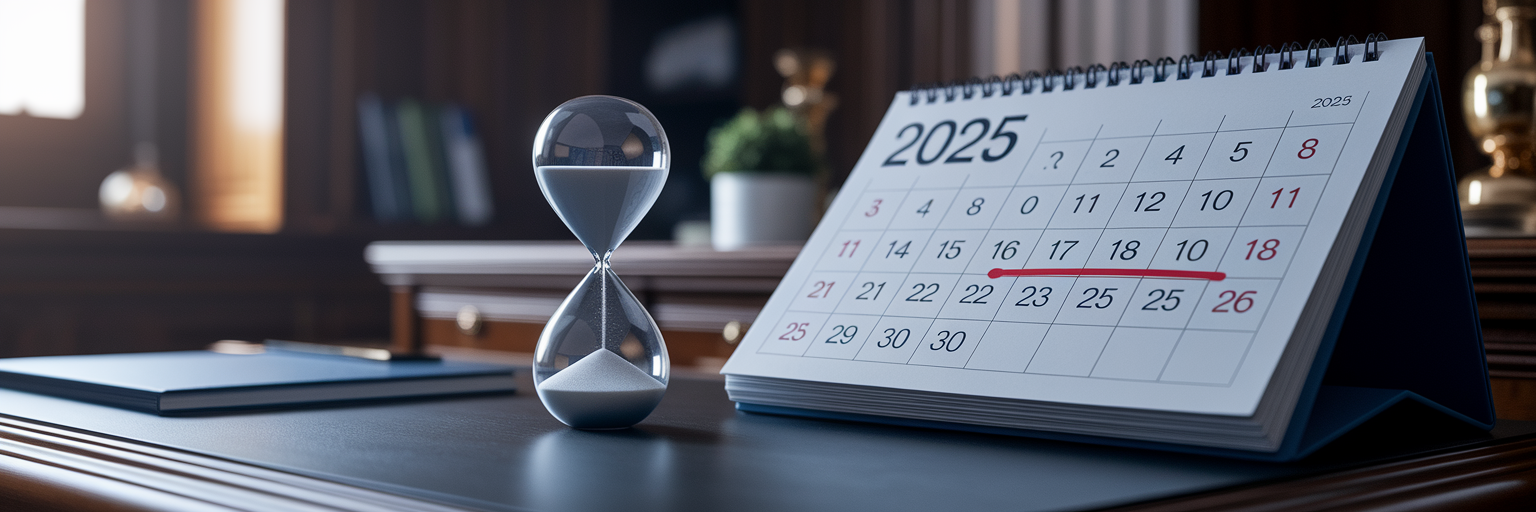The scenic drive to Folly Beach is a Lowcountry staple, but its mix of tourist traffic, narrow lanes, and frequent stops can turn a beautiful day into a chaotic one in an instant. A collision here feels overwhelming, but knowing the right actions to take immediately can protect your health and your rights. This guide provides clear, actionable car accident Folly Road steps to follow in the moments, days, and weeks after a crash.
Immediate Actions at the Scene
In the disorienting moments after a collision, your priority is safety. The unique environment of Folly Road, with its heavy traffic and limited shoulder space, demands a calm and methodical response. Focus on these critical actions to secure the scene and begin the official process.
- Prioritize Safety Above All Else: Before anything else, check on yourself, your passengers, and the occupants of the other vehicle. If anyone has any potential injuries, call 911 immediately. Adrenaline can easily mask pain, so it is best to let paramedics make an assessment. Do not attempt to move anyone who appears seriously injured unless they are in immediate danger, such as from a fire.
- Secure the Area to Prevent Further Incidents: Turn on your vehicle’s hazard lights right away. Folly Road is often congested, and visibility can be a challenge. If the vehicles are drivable and the crash is minor, carefully move them to the side of the road to prevent a secondary collision. This simple step is crucial for everyone’s safety.
- Contact Law Enforcement: A police report is not optional; it is a foundational document for any insurance claim. Depending on the exact location of the Folly Beach crash, either the Folly Beach Police Department or the Charleston County Sheriff’s Office will respond. Their official report provides an objective account of the incident.
- Maintain Composure and Avoid Admitting Fault: When you speak with the other driver, be polite but stick to the facts. Exchange information without discussing how the accident happened. Avoid phrases like “I’m sorry” or “I didn’t see you,” as these can be interpreted as an admission of guilt by insurance companies.
Gathering Essential Information and Evidence
Once the scene is secure and help is on the way, your focus should shift to documenting everything. The information you collect here forms the backbone of your insurance claim. Think of yourself as a fact-finder. Every detail, no matter how small, helps build a clear picture of what happened.
Systematically Exchange Key Details
Use your phone’s notes app or a pen and paper to collect specific information from the other driver. Do not rely on memory. You will need their full name, contact information, insurance company and policy number, driver’s license number, and the vehicle’s license plate number.
Document the Scene with Photographs
Your smartphone is a powerful evidence-gathering tool. Take more photos than you think you need from various angles. Capture the damage to all vehicles involved, both up close and from a distance. Photograph the wider scene to show traffic signs, skid marks, weather conditions, and any road features unique to Folly Road that may have contributed to the crash.
Identify and Speak with Witnesses
An independent witness can be invaluable if the other driver disputes liability. Politely ask anyone who saw the accident for their name and contact information. Their objective account can confirm your version of events and strengthen your claim significantly.
The Critical Role of the Police Report
The official police report contains the responding officer’s findings, diagrams of the scene, and sometimes a preliminary assessment of fault. This document is vital for insurance negotiations. Navigating the legal aftermath of a collision can be complex, and we provide resources to guide those affected by accidents in the Lowcountry. You can learn more about our approach on our website.
| Category | Specific Details to Collect | Why It’s Important |
|---|---|---|
| Other Driver Information | Full Name, Address, Phone Number, Driver’s License Number | Ensures you can contact the responsible party and their insurer. |
| Vehicle & Insurance | License Plate, Make/Model/Color, Insurance Company, Policy Number | Needed to initiate the insurance claim process. |
| Scene Details | Location (mile marker, intersection), Time of Day, Weather | Helps reconstruct the accident conditions accurately. |
| Witness Information | Full Name, Phone Number or Email | Provides an unbiased account to support your claim. |
| Police Information | Responding Officer’s Name, Badge Number, Report Number | Crucial for obtaining the official accident report. |
Addressing Medical Needs and Documenting Injuries
After a crash, your health is the top priority. Many people feel “fine” immediately following an accident, only to wake up in severe pain the next day. Addressing your medical needs promptly is not only essential for your well-being but also for creating a formal record of your injuries. If you are wondering what to do after a car accident in Charleston, SC, seeking medical care should be at the top of your list.
- Seek Immediate Medical Attention: The rush of adrenaline after a crash can mask serious injuries like whiplash, concussions, or internal bruising. These conditions may not present symptoms for hours or even days. Visiting an urgent care clinic or your primary care physician creates an official record linking your injuries directly to the accident.
- Create a Formal Record of Your Injuries: Without a timely medical evaluation, an insurance company can argue that your injuries are unrelated to the crash. A doctor’s report is the official evidence needed to prove your injuries were a direct result of the collision.
- Follow All Medical Advice Diligently: It is critical to adhere to the treatment plan your doctor prescribes, whether it involves physical therapy, medication, or follow-up appointments. If you fail to follow medical advice, an insurer may argue that your injuries were not as severe as you claim.
- Keep a Detailed Log of Symptoms and Expenses: Maintain a simple journal to track your daily pain levels, physical limitations, and the emotional impact of the accident. At the same time, keep a meticulous file of all related expenses, including medical bills, prescription receipts, and any documentation of lost wages from time off work. Properly documenting these damages is a key part of any personal injury claim. Understanding your rights is the first step, and our Charleston personal injury lawyers can offer clarity on this process.
Navigating Insurance and Legal Deadlines
Once you have addressed your immediate health concerns, you must manage the administrative and legal timelines that follow a crash. Insurance companies operate on their own schedules, and South Carolina has strict deadlines for taking legal action. Understanding these rules is essential to protecting your right to fair compensation.
Report the Accident to Your Insurance Company
Notify your own insurance company about the accident promptly. However, be cautious in your communication. Stick to the basic facts of when and where the accident occurred. Avoid giving a recorded statement or speculating on who was at fault until you have had a chance to review the situation, preferably with legal counsel.
Understanding South Carolina’s Statute of Limitations
In South Carolina, you generally have three years from the date of the accident to file a lawsuit for personal injury or property damage. While that may seem like a long time, building a strong case requires thorough investigation and preparation. According to the South Carolina Code of Laws § 15-3-530, this is a strict deadline. Missing it means you forfeit your right to seek compensation through the courts.
Be Wary of Early Settlement Offers
It is common for the at-fault driver’s insurance adjuster to contact you quickly with a settlement offer. These initial offers are often low and are made to close your case before the full extent of your injuries and financial losses are known. Never sign any documents or accept a settlement without fully understanding your rights.
The Concept of Comparative Negligence
South Carolina car accident laws use a modified comparative negligence rule. This means you can still recover damages even if you were partially at fault, as long as your share of the fault is 50% or less. However, your final compensation will be reduced by your percentage of fault. This makes an accurate and fair determination of liability absolutely critical.
When to Seek Professional Legal Guidance
Many people wonder if they need an attorney after a car accident. While not every fender bender requires legal action, certain situations make professional guidance essential. If you are facing disputed fault, serious injuries, or an uncooperative insurance company, a lawyer can protect your interests and manage the complexities of your claim.
An experienced Folly Road car accident lawyer provides value by:
- Handling All Communications: They will manage all interactions with insurance adjusters, preventing you from saying something that could weaken your claim.
- Conducting an Independent Investigation: A legal team can gather evidence you might miss, such as witness statements, police reports, and expert consultations, to build a strong case on your behalf.
- Calculating the Full Value of Your Claim: An attorney ensures all potential damages are accounted for, including future medical bills, lost earning capacity, and non-economic damages like pain and suffering.
- Managing Legal Complexities: From negotiating a fair settlement to representing you in court if necessary, a lawyer handles the entire legal process, allowing you to focus on your recovery.
For dedicated legal support, the team at our Charleston office provides the expert guidance needed to handle your claim. You can reach out to us through our contact page. Our Charleston car accident lawyers are equipped to handle these complex cases.


